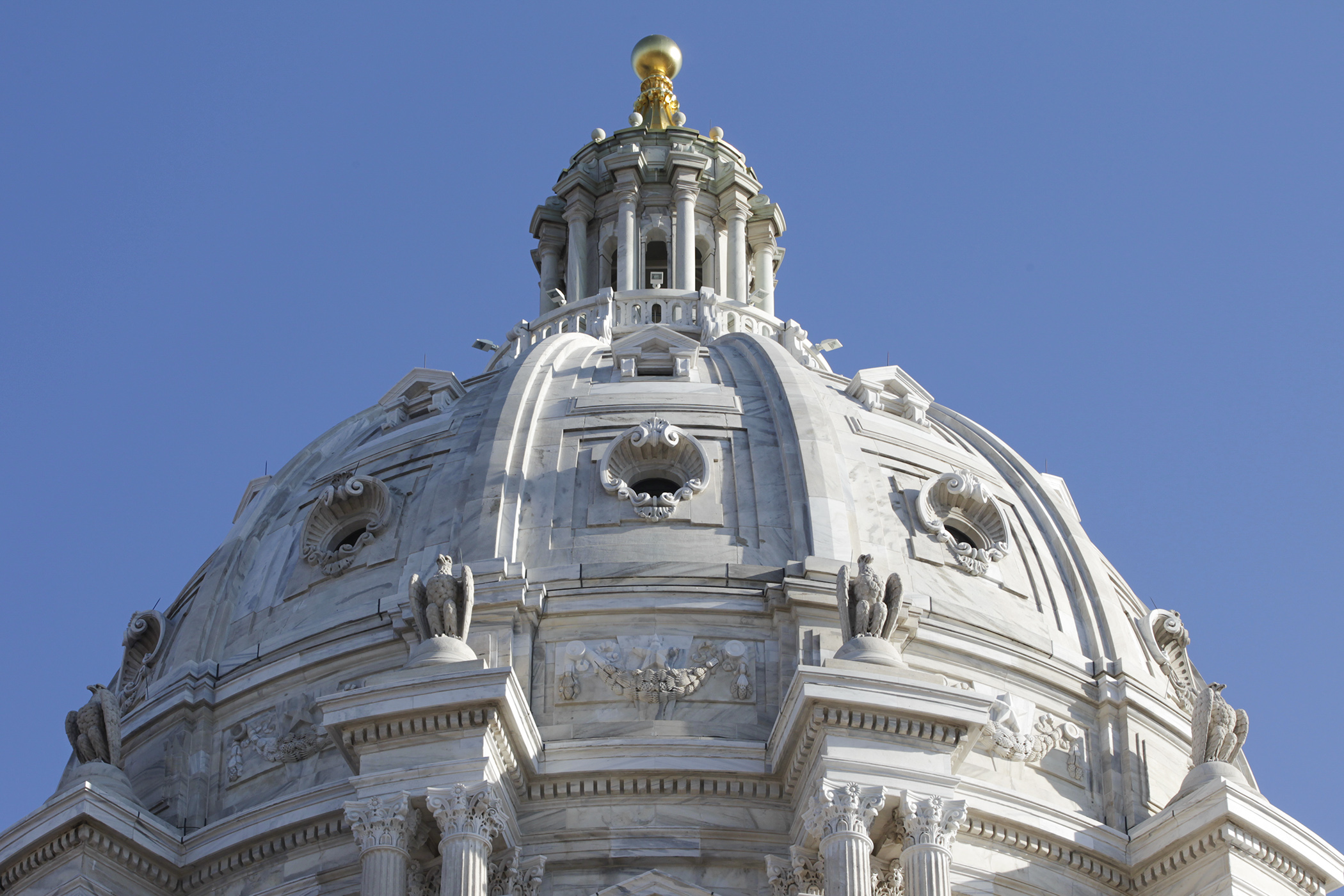Division OKs what House taxes chair calls ‘biggest property tax cut in 20 years’

Many a legislator has said this session that the chief topic constituents wish to discuss is property taxes. Specifically, that they’re rising at a precipitous clip and putting stress on household budgets.
But help may be on the way, as larger, more accessible credits and refunds are contained in the House Property Tax Division’s report. On Wednesday, the division approved that report, as amended, by a 10-3 vote and passed it along to the House Taxes Committee for possible inclusion in an omnibus taxes bill.
The division then adjourned for the year, barring unforeseen business.
HF4064 is sponsored by the division chair, Rep. Cheryl Youakim (DFL-Hopkins). Among the provisions in it are significant changes in the renter’s tax credit, which would become a refundable credit on a resident’s income tax. It’s estimated that it would result in about $822 million being returned to renters in the current biennium.
Proposed changes to that credit are designed to result in expanded eligibility and larger refunds for most filers. The same is true of changes to the homestead property tax refund program that would add $72 million more in refunds in the next biennium, according to estimates from the nonpartisan House Fiscal Analysis Department.
The bill would also increase local government aid by $68.4 million in the 2024-25 biennium and county program aid by $26 million over the same period. And a formula would be created to fund school districts more equitably across the state, resulting in $90.7 million of increased aid in the next biennium.
The state’s soil and water conservation districts would receive annual funding of $22 million, and the school building bond agricultural credit rate would be increased.
Thirteen municipalities and two counties would be permitted to institute or extend local option sales taxes, pending voter approval. Five cities would receive tax increment financing authority, and two would be allowed to extend local lodging taxes.
The bill’s companion is SF3971, sponsored by Sen. Matt Klein (DFL-Mendota Heights), but a more detailed collection of proposals is likely to emerge from the Senate Subcommittee on Property Taxes.
Some provisions presented at Monday’s walkthrough of the bill were altered by amendments on Wednesday. The bill was amended to significantly revise its section on more equitable distribution of school district funding; make several technical corrections recommended by the Department of Revenue; and allow surviving spouses of deceased veterans to reapply for a property tax exclusion.
While the division’s Republican lead, Rep. Jerry Hertaus (R-Greenfield), praised many parts of the bill, he said the current local government aid formula leaves too many cities without aid. He voted against the bill, but Rep. Paul Anderson (R-Starbuck) voted in favor, particularly praising the changes in the renter’s credit and the dedicated funding for soil and water conservation districts.
“This bill provides a huge amount of property tax cuts, over $612 million over the next biennium,” said Rep. Paul Marquart (DFL-Dilworth). “That’s the biggest property tax cut in 20 years. And it’s truly going to make a difference in people’s lives.”
Related Articles
Search Session Daily
Advanced Search OptionsPriority Dailies
Speaker Emerita Melissa Hortman, husband killed in attack
By HPIS Staff House Speaker Emerita Melissa Hortman (DFL-Brooklyn Park) and her husband, Mark, were fatally shot in their home early Saturday morning.
Gov. Tim Walz announced the news dur...
House Speaker Emerita Melissa Hortman (DFL-Brooklyn Park) and her husband, Mark, were fatally shot in their home early Saturday morning.
Gov. Tim Walz announced the news dur...
Lawmakers deliver budget bills to governor's desk in one-day special session
By Mike Cook About that talk of needing all 21 hours left in a legislative day to complete a special session?
House members were more than up to the challenge Monday. Beginning at 10 a.m...
About that talk of needing all 21 hours left in a legislative day to complete a special session?
House members were more than up to the challenge Monday. Beginning at 10 a.m...
